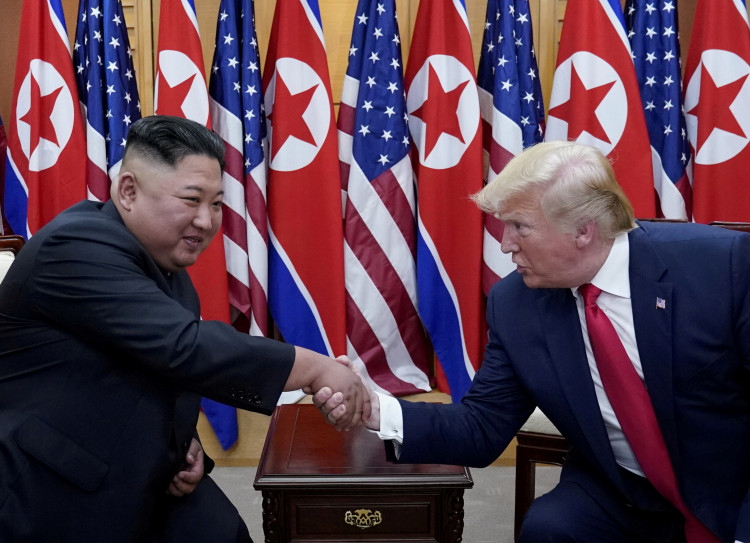North Korea exploited the gullibility of President Donald Trump to enhance its ballistic missile and nuclear weapons development programs unhindered over the past two years, according to a United Nations report.
In doing so, North Korea again blatantly violated UN sanctions in place since 2006, according to a confidential UN report accessed by some media organizations Monday. It also revealed North Korea continued to launch cyberattacks against global financial institutions and cryptocurrency exchanges globally.
The 67-page report to the U.N. Security Council, North Korea sanctions committee said North Korea illicitly imported refined petroleum and exported some $370 million worth of coal with the help of China. The report will be made public next month.
"In 2019, the Democratic People's Republic of Korea (DPRK) did not halt its illicit nuclear and ballistic missile programs, which it continued to enhance, in violation of Security Council resolutions," said UN sanctions monitors. "Despite its extensive indigenous capability, it uses illicit external procurement for some components and technology."
UN sanctions against North Korea have been strengthened by the 15-member Security Council over the years in a continuing effort to impede funding for North Korea's nuclear and ballistic missile programs.
For its part, North Korea has said it's no longer bound by a commitment to halt nuclear and missile testing. It blamed Trump for failing to meet the Dec. 31, 2019 deadline it imposed for Trump to show more flexibility in nuclear talks. The personal talks between Trump and North Korean dictator Kim Jong-un collapsed during their second summit in Vietnam in 2019 after Trump tried and failed to coerce Kim into agreeing to one-sided demands in favor of the United States.
The report said North Korea conducted 13 missile tests in 2019 -- most of them after the collapse of the Vietnam talks on Feb. 28. 2019 -- launching at least 25 missiles, including new types of short-range and submarine-launched ballistic missiles. It said North Korea "continued to develop infrastructure and capacity for its missile program."
The UN report said North Korean cyber-attacks resulted in monetary losses and have provided illicit revenue for the country in violation of financial sanctions.
"These attacks are low-risk, high-reward, difficult to detect, and their increasing sophistication can frustrate attribution," according to the report.
China has been identified as the key country that has enabled North Korea to evade UN economic sanctions. North Korea had started to export millions of metric tons of commodities such as coal and sand to China since 2017.
"According to a Member State, the DPRK exported 3.7 million metric tons of coal between January and August 2019, with an estimated value of $370 million," said the report.
The report said another UN Member State revealed most of North Korea's coal exports (estimated at 2.8 million metric tons) were conducted via ship-to-ship transfers from North Korean-flagged vessels to Chinese barges. These Chinese barges delivered the North Korean coal shipments directly to three ports in China's Hangzhou Bay and also to facilities along the Yangtze River.
In 2017, the UN further imposed several sets of international sanctions, limiting North Korea's oil imports and banning its exports of coal, fish and textiles to push the country to stop its nuclear and ballistic weapons programs. These sanctions have failed.






